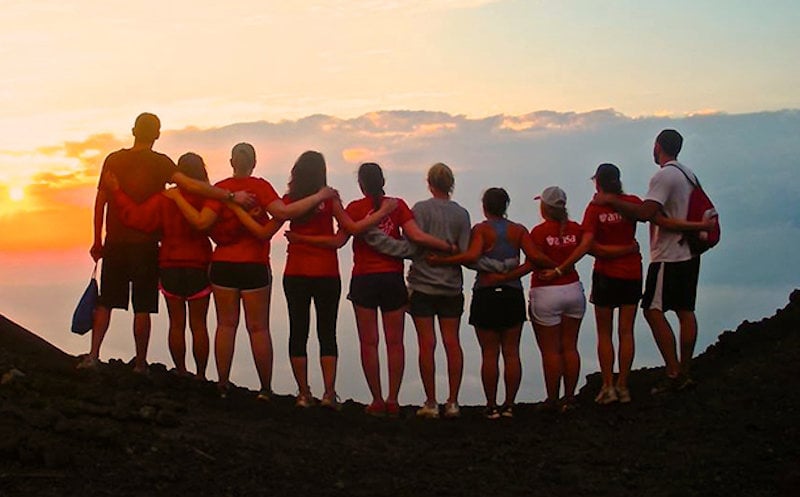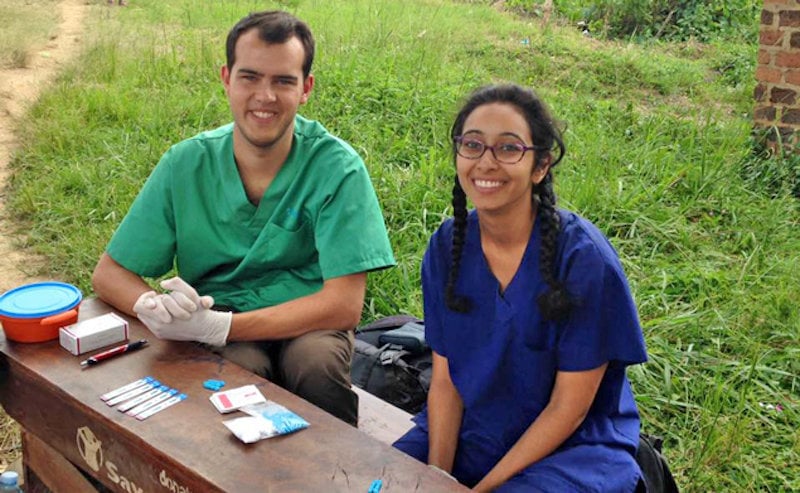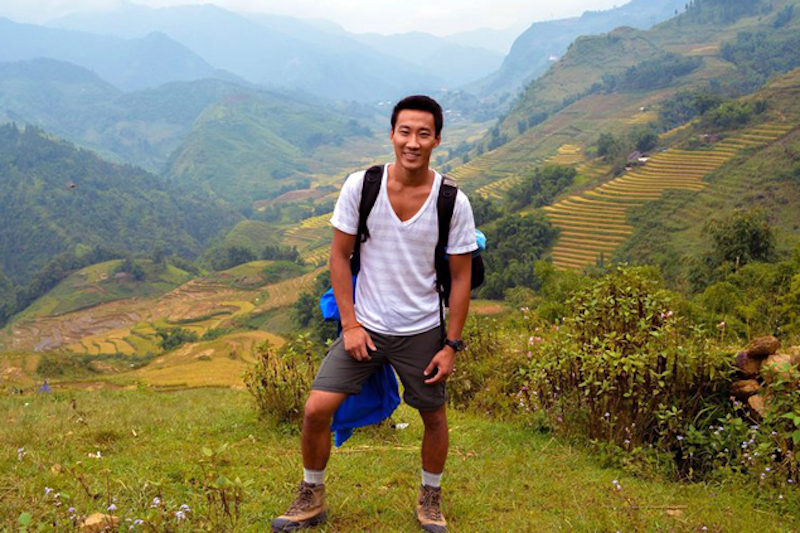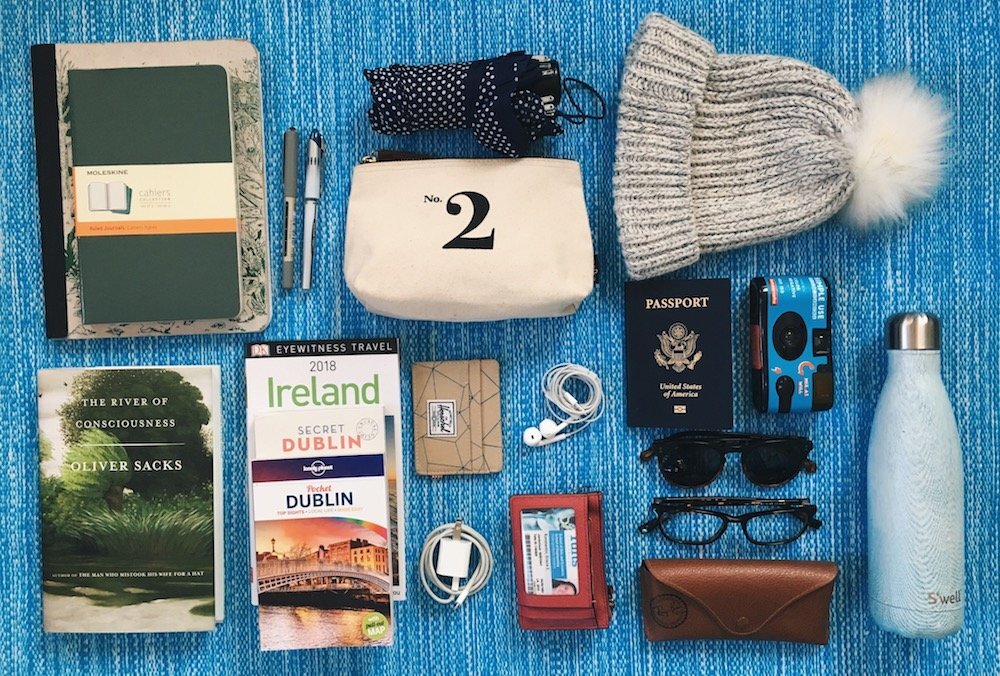The Ultimate Guide on How to Plan a Volunteer Trip Abroad
From choosing a program to figuring out what to pack, everything you need to know about organizing a volunteer abroad trip can be found right here.

Guide Contents
- Choosing Programs, Destinations, and Dates
- What can I do as a volunteer?
- For how long should I volunteer abroad?
- Where should I volunteer?
- How do I find a volunteer program?
- What should I be looking for?
- What are some good programs for families / students / older volunteers?
- Pre-departure Prep: Packing, Budgets, Visas, Insurance, and Flights
- What do I need to do before I go?
- What will it be like while I'm volunteering?
- How do I budget?
- Fundraising tips
- Help! What should I pack?
Volunteer trips abroad are becoming more popular than ever, but for first-timers (or even experienced volunteers), the whole process can understandably seem pretty overwhelming. There are so many options -- dozens of countries, organizations, and fields to choose from -- that it can be hard to know where to start.
These questions tend to be pretty personal, so, although we'll give you guidance, the ultimate decision should be yours.
Fortunately, we at Go Overseas are here for you. From choosing a program to figuring out what to pack, everything you need to know about organizing a volunteer abroad trip is covered in our in-depth guide to volunteering abroad.
I. Choosing programs, destinations, and dates

In this section, we will cover all the questions you'll have about choosing where, when, and with whom to volunteer abroad. These questions tend to be pretty personal, so, although we'll give you guidance, the ultimate decision should be yours.
What can I do as a volunteer?
The types of volunteer projects out there are as varied as volunteers themselves. Some popular project types include:
- Education and youth development: like teaching English, sports, or working with youth centers.
- Conservation: which includes animals, wildlife areas, and marine life.
- Medicine and healthcare: these projects vary from health education to actual healthcare.
- Construction / building: like building houses or schools.
- Agriculture / farming: work planting trees, on community gardens, or larger farms.
- Business: if you have experience with basic business skills, help educate on or set up small businesses abroad.
- Community development: this is a vague one, but loosely refers to all projects that help a community, like building a well, a community center, or staffing a food bank.
- Disaster relief: most disaster relief projects require skilled volunteers, especially at the outset.
This list is by no means exhaustive. There are more types of projects out there -- some of which are very specific in nature (e.g. managing the social media accounts for an NGO based in Mexico City). When choosing a project type, try your best to match it to a professional skill set you already hold.
For how long should I volunteer abroad?
Most volunteer programs will have a minimum commitment of at least 1 week. However, it's not uncommon to find projects that range from a minimum commitment of 2 weeks - 6 months.
Most volunteer program providers will have opportunities year-round. Some exceptions, though, would be programs that work around an academic schedule (e.g. teaching) or habits of a certain form of wildlife (e.g. sea turtle conservation during hatching season).
Where should I volunteer?
You can literally volunteer anywhere in the world but the bulk of volunteer projects are in Asia, Africa, and Latin America. Popular volunteer destinations include India, Thailand, Nepal, Cambodia, South Africa, Costa Rica, Vietnam, Peru, Australia, Uganda, Kenya, Brazil, Haiti, and Japan.
Note that with some volunteer projects you'll be required to speak the local language at a basic to advanced level. If not, English is often the main language of communication.
How do I find a volunteer program?
We might be a little biased, but, Go Overseas offers a comprehensive list of volunteer programs around the world, along with ratings, reviews, and volunteer interviews to give you a sense of what it's like abroad. You can search for programs here based on project type or destination.
A few other databases where you can search include:
If you're a mid-career professional and have a particular skillset that you'd like to contribute, I'd also recommend looking into MovingWorlds or Peace Corps Response -- a more short-term subset of the Peace Corps available to skilled professionals (note: some projects are only open to RPCVs).
Offline, don't discount leveraging your networks. It’s as analog as it gets, but your university, workplace, or even social circle can also be a valuable resource in the volunteering search. Start asking around to see if anyone you know has ever volunteered abroad, pick their brain about their experience, and ask if they have any recommendations or advice for you.
I decided to apply to a volunteer English teaching program in part because my co-worker at the time had previously volunteered with them. What ended up being one of the best decisions of my life came about because I talked to the people around me, so don’t underestimate the power of the hive mind when it comes to international connections.
What should I be looking for?
As far as organizations are concerned, you should be doing some due diligence to ensure that you’re signing on to donate your time (and likely some money) to a responsible program provider. There’s no gold sticker to certify that a given organization is legit, but there are plenty of clues and warning signs you can look out for to help you avoid some of the shadier providers out there.
Basic things to look for
- Reviews from former volunteers and positive feedback from the local community.
- Background check required -- especially if you're working with children.
- Transparency in spending.
- Volunteer support is offered.
- They're willing to answer your questions and put you in touch with past volunteers.
Resources like our reviews and sites like Charity Navigator can also help you get a more complete idea of how certain organizations operate and what it’s actually like to volunteer with them.
What are some good programs for families / students / older volunteers?
Most volunteer trip providers are happy to accommodate couples, families, students, or older volunteers. However, there are absolutely volunteer trips out there specifically designed for each of these different traveler personas. Below is a list of pages on Go Overseas that'll direct you to an appropriate list of programs:
- Volunteer projects for high school students abroad
- Programs with options for volunteering as a family
- Lastly, here's a list of volunteer programs for senior volunteers.
Why do some programs cost money? I thought volunteering was supposed to be free!
This is one of the most common questions that comes up among potential volunteers, especially those going overseas to volunteer for the first time. The TL;DR answer is that program fees are usually going toward covering the costs of you, the volunteer, while you’re there, as well as potentially supporting other operating costs and helping to keep the organization financially viable.
That said, there are plenty of free and low cost volunteer options out there.
II. Pre-departure prep: packing, budgets, visas, insurance, and flights

Now that you've chosen a destination, program, and date for your volunteer trip, next up is figuring out the logistics like visas, travel insurance, flights, budgets, and packing lists. Again, there will be some personal and destination specific variations, but below is a basic framework to help you make sure the most important parts are checked off.
What do I need to do before I go?
Pre-departure preparations will vary depending on your country of choice, how long you plan to be there, visa requirements, the environment in which you’ll be volunteering, and much more. Your program provider / volunteer organization should give you a pre-departure checklist, but a few standard things to mark off include:
Passport
6+ weeks before departure
If you don't yet have a passport, make sure you apply for one at least 6 weeks in advance. You can expedite a U.S. passport to get it within 8 days - 3 weeks if needed. If you already have a passport, make sure it's valid for at least 6 months past your departure date and has blank pages.
Visa
6+ weeks before departure
You may or may not need a visa. For many destinations, U.S. citizens are able to stay in the country for under 90 days on a tourist visa. Some will require you to apply for one in advance. For anything longer, you'll have to apply for a visa or extension. CIBT Visas will help you do a quick check on whether or not you need a visa.
Flights
5 weeks before departure
Book your flights well in advance. If you're under 26, you can also take advantage of youth discounts. StudentUniverse can help you compare youth / student / faculty discounts (which could save you a few hundred dollars, depending on the flight). Both StudentUniverse and Kayak will search for regular adult tickets.
Read more: How to Book Cheap Flights
Vaccinations and health recommendations
4+ weeks before departure
Some countries require you to have certain vaccinations to enter. For example, you must have proof of having a yellow fever vaccine to enter / transfer through South Africa. For a full list, Compare the Market has a great map of traveler vaccinations.
Additionally, you may need to bring medications, like malaria prophylaxis, for your trip. Consult a travel doctor for more details.
Travel insurance
1 - 3 weeks before departure
Some volunteer program providers will include travel insurance in their program fees. If they don't, it's a really good idea to have travel insurance to cover you in the case of a medical emergency, evacuation, trip delays, baggage loss, or to protect any electronics / sporting equipment you're bringing.
World Nomads is one travel insurance provider to look into.
Register with the State Department
1 week before departure
Let the local U.S. embassy know that you're there by registering with the State Department's STEP program. This way, you'll be notified if there's an emergency (e.g. natural disaster or terrorist attack) and the embassy will try to account for you / reach you.
Cell-phones
1 week before departure
Did you know that most cell phones sold in the U.S. are now unlocked for international usage? That means you can bring your normal phone with you, pick up a SIM card and a pay-as-you-go plan in your arrival airport, and have a local phone number in under 30 minutes. That said, it's still a good idea to double check with your cell phone carrier to make sure your phone is unlocked for international usage.
You can also pick up a cheap dumb phone in country if you'd prefer to leave your smartphone at home.
Notify your bank / credit cards
1 week before departure
Give your bank and credit card companies a quick call and let them know that you'll be abroad and where you'll be. This way, they won't flag your account as potentially hacked when they see a charge from, say, Sri Lanka. With larger banks and credit cards, you can usually do this quickly online.
What will it be like while I'm volunteering?
One of the most difficult things to prepare for, however, is the subjective experience of volunteering abroad. What will it be like? What sort of culture shock should you brace yourself for?
Although there's little to nothing that you can realistically do to prepare yourself for this aspect of being an international volunteer, reading volunteer stories is a helpful way to mentally prep for volunteering abroad. There are some pretty good books by Peace Corps volunteers, like Living Poor by Moritz Thomsen, as well as interviews and videos from volunteers right here on Go Overseas:
Read about volunteering in Nepal
"The thing about Nepal that surprised me the most is how happy and friendly the people are there. In a country with rough politics..." [Read more].
How do I budget?
The sole fact that you’re thinking about budgets already puts you far ahead of the rest of us. Though you may get a stipend for room / board during your volunteer trip, not every volunteer is compensated for their work. To help you, here's a sample budget to work from:
| Expense | Week 1 | Week 2 | Week 3 | Week 4 | Total |
|---|---|---|---|---|---|
| Program Fee | - | - | - | - | $800 |
| Airfare | - | - | - | - | $1,200 |
| Visa | - | - | - | - | $50 |
| Vaccinations | - | - | - | - | $110 |
| In-country transit | $30 | $10 | $10 | $30 | $80 |
| Insurance | $31.25 | $31.25 | $31.25 | $31.25 | $125 |
| Lodging | $70 | $70 | $70 | $70 | $280 |
| Food | $140 | $140 | $140 | $140 | $560 |
| Alcohol | $30 | $30 | $30 | $30 | $120 |
| Cell phone | $10 | $10 | $10 | $10 | $40 |
| Personal expenses | $50 | $50 | $50 | $50 | $200 |
| TOTAL | $3,565 |
This budget was based off a theoretical trip to volunteer for 4 weeks in Thailand. I always budget in a little extra under "personal expenses" that I may or may not spend.Obviously, you'll adjust your expenses according to your length of program, personal habits, destination(s), and what's included in your program fees (many include travel insurance, housing, and food). To personalize your budget, download our worksheet and adjust as needed.
Fundraise for your trip
If you’re really motivated, consider looking into fundraising ideas to help you pay for your fee or other expenses associated with your volunteering project. According to Kiersten of The Blonde Abroad, the best platform she's found for fundraising her volunteer travels is You Caring.
Help! What should I pack?
This is another area where it’s usually best to defer to your organization or other people who have spent time in your country of choice. Most program providers will prepare you with a packing list and give you tips on any cultural factors to be aware of (e.g. not wearing short-shorts or tank tops). Also, look for tips from other volunteers, like this one from IVHQ alumni, Jef:
I was going to work at the medical placement in Uganda, but I didn't know exactly what to bring. It turned out that there were no examination gloves and no hand alcohol for personal hygiene. In a country with a high HIV prevalence and a risk of transmitting other contagious diseases... every volunteer should bring this for himself.
While packing, try to limit yourself to one piece of luggage -- like Osprey's 48L backpack -- and one personal item, like a daybag or purse. As for filling those two, below is a sample packing list for a volunteer trip of 1 week - 3 months (seriously, rather than packing more for a 3 month trip, just do laundry more often):
Clothing
- 6-7 tops (tank tops / t-shirts)
- 4-5 bottoms (pants / shorts / skirt)
- 1 jacket
- 1 pair of sneakers / hiking shoes
- 1 pair of comfy sandals / slip-ons
- PJs (especially if you're in a shared dorm)
- 7 pairs of underwear
- 3-5 bras
- 6-7 pairs of socks
- Hat, scarf, and gloves (cold-weather only)
- Bathing suit
- Hat and/or bandanna

Toiletries
Only pack travel-sized toiletries and plan to stock up on anything you run out of.
- Soap (you can use it to wash clothes too)
- Shampoo & conditioner
- Toothbrush & toothpaste
- Bug spray (often expensive abroad)
- Sunscreen
- Hand sanitizer / wipes
- Basic first aid kit
- Medications
Electronics
- Headlamp / flashlight
- Unlocked phone
- Headphones
- Converters
- Portable battery bank
- Extra batteries
- Dry sacs (for keeping clothes / electronics dry)
- Camera (optional)
- E-reader or tablet (optional)
Miscellaneous
- Extra pair of glasses
- A quick dry towel
- Reusable water bottle
- Notebook and pen
- Snacks like granola bars, Justin's nut butter, beef jerky, etc. (optional)
- Tea / instant coffee (optional)
Donations
Before leaving, ask your organization if there are any donations that you can bring with you, like school or medical supplies. It's always best to get specific recommendations since you never know if a pack of basic pens would help a school more than those stickers you though to bring.
If you're staying with a host family, always bring a gift.
The truth is, though, that you inevitably won’t use everything you bring, so try to be as discerning as possible about whether you actually need something -- future you will thank the present you when you’re packing to come back home.
Making the most of your time abroad
While you're abroad, don't forget these tips to make your time as worthwhile as possible:
- You'll have a lot of free time -- prepare yourself by bringing a few books, a travel yoga mat, that ukulele you always meant to learn to play.
- Take time to learn about your community's needs before taking action.
- Record what you worked on. This'll help you put your experience on a resume or explain it in a job interview later.
- Make friends and learn the language.
- Be culturally sensitive and open to learning from your community.
- Consider living with a host family -- it'll help you integrate into the community much quicker.
Have fun out there!

If you've made it through this beast of a guide (hey, it did say "ultimate", right?) then congrats. I'd say you are more than prepared to get out there and embark on a volunteer trip abroad. Have fun out there, friend. You're going to do great.
